ExpressJS Routing: A Deep Dive into Handling Requests
In the realm of web development, efficient request handling is the backbone of creating powerful and responsive applications. ExpressJS, a widely used Node.js framework, offers a robust and flexible routing system that forms the cornerstone of building web applications. In this blog, we'll take a comprehensive journey into ExpressJS routing, exploring how it allows you to effectively manage incoming requests, organize your application's endpoints, and create a seamless user experience. Additionally, we'll introduce you to our Hire ExpressJS Developer Services, which can help you harness the full potential of ExpressJS routing for your development projects.
![[object Object]](https://clipl-web1.sgp1.cdn.digitaloceanspaces.com/images/clu85nlcz005f4irzfz3e0wr7.png )
Route Definition: Define routes using the HTTP verbs (GET, POST, PUT, DELETE, etc.) and specify the URL patterns. Each route is associated with a route handler function that is executed when the defined URL is accessed.
Route Parameters: Utilize route parameters to capture dynamic values from the URL. Parameters provide flexibility and enable you to create reusable route handlers.
Route Middleware: Attach middleware functions to routes to perform tasks like authentication, data validation, and logging before the route handler is executed.
Route Chaining: Chain multiple route handlers and middleware functions for a single route, allowing you to create modular and organized request processing pipelines.
![[object Object]](https://clipl-web1.sgp1.cdn.digitaloceanspaces.com/images/clu85kk5m00514irz4ogv78rk.png )
- Basic Route Handling: Define routes and route handlers to handle different types of requests. Create routes for various resources and map them to corresponding route handlers.
- Dynamic Route Parameters: Capture dynamic values from URLs using route parameters. Leverage these parameters to retrieve and process specific data.
- Middleware in Routing: Implement middleware functions to intercept and modify requests before they reach the route handler. This is useful for tasks like authentication and input validation.
- Route Chaining and Next(): Chain multiple middleware functions and route handlers together using the `next()` function. Pass control from one middleware to the next to create a well-defined processing flow.
![[object Object]](https://clipl-web1.sgp1.cdn.digitaloceanspaces.com/images/clu85lq8600554irz9qc4b051.png )
While ExpressJS routing simplifies request handling, mastering its nuances requires expertise. Our Hire ExpressJS Developer Services offer invaluable support and expertise:
- Collaborate with skilled ExpressJS developers who specialize in creating efficient and organized routing systems.
- Expedite your project's development by leveraging our experience and best practices in ExpressJS routing.
- Ensure seamless integration of routing components, enhancing your application's performance and maintainability.
- Access ongoing support and maintenance to keep your routing system up-to-date and optimized.
Conclusion:
ExpressJS routing is a fundamental aspect of building robust and organized web applications. By delving into the intricacies of routing, you can create applications that handle requests effectively, provide a seamless user experience, and optimize performance. As you embark on this journey, consider CloudActive Labs as your partner. Our Hire ExpressJS Developer Services provide the expertise needed to elevate your routing strategies, ensuring your applications are built with precision and scalability. Reach out to CloudActive Labs today and unlock the potential of ExpressJS routing for your development projects.
























